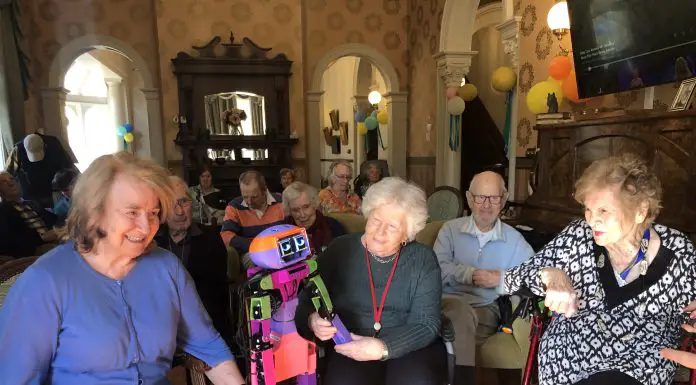In this case study, we profile the 2023 Future of Ageing Awards entrant the Registry of Senior Australians (ROSA), awarded highly commended in the Research category.
The Registry of Senior Australians (ROSA) is a groundbreaking national multisectoral integrated data platform created to monitor and evaluate the health, service utilisation, social welfare, medication use, mortality, and other critical outcomes of more than 3.5 million individuals who have received or are receiving aged care services across Australia since 2002.
ROSA’s inception in 2017 was made possible through a collaborative effort involving eight key institutions, including the South Australian Health and Medical Research Institute (SAHMRI), ECH Inc, Silverchain, Life Care, University of South Australia, Flinders University, University of Adelaide, Council on the Ageing SA, and SA Health Office for Ageing Well.
Over the years, ROSA has integrated data from 17 datasets, involving nine federal and state-based data custodians, with the support of five data integration authorities. This state-of-the-art big data resource has played a pivotal role in advancing national aged care policy and reforms.
Why it came about
ROSA emerged as a response to the pressing need to enhance the quality of care provided to older Australians accessing aged care services. The challenges of accessibility, increasing care complexity, and emerging crises like COVID-19 have complicated the provision of person-centred care for the elderly. With a significant portion of the population aged 65 and above and 1.5 million accessing aged care services annually, public confidence in the aged care sector has been eroded. The sector has faced numerous investigations into quality and safety over the years, culminating in the Royal Commission into Aged Care Quality and Safety (2018-21).
ROSA addressed several identified issues, including the lack of cross-sectoral data integration, evidence gaps in clinical trials for aged care recipients, and the growing data collection and reporting burden on aged care providers.
How it works
ROSA’s vision is to guide evidence-driven decision-making for quality, coordinated, efficient, and age-friendly services, ultimately improving outcomes for those accessing aged care. It has five core objectives: maintaining a unique data collection with analytic capability, supporting health and medical research, producing evidence for cost-effective service innovations, enabling the monitoring of the quality of ageing and aged care services over time, and promoting community engagement and intergenerational learning. The development of ROSA required extensive collaboration with aged care industry partners, clinicians, consumer representatives, advocacy organisations, and government bodies. The data infrastructure underpinning ROSA is a result of complex data linkage processes, performed by cross-jurisdictional authorised data integration bodies, enabling the examination of interactions between aged care recipients and the health, aged care, and social welfare sectors.

Who was involved
ROSA’s success is attributed to the contributions of a diverse team of experts from various disciplines, including academics, clinicians, aged care providers, consumer representatives, and healthcare administrators. The project is housed at the South Australian Health and Medical Research Institute (SAHMRI) and is led by Prof Maria Inacio and Prof Gillian Caughey. The ROSA team comprises 22 researchers, including post-doctoral researchers, statisticians, and data scientists. The ROSA Steering Committee, composed of 18 members, along with three additional Advisory Committees, played crucial roles in guiding and overseeing ROSA’s activities. Consumer input is integral to ROSA, and the Consumer & Community Advisory Committee actively participates in guiding study proposals and ensuring consumer perspectives are integrated into all projects.
Evidence of success
Since its establishment in 2017, ROSA has demonstrated its impact and success through various achievements, including:
- The publication of numerous academic papers, reports, conference presentations, and consumer and community engagement activities, contributed to a better understanding of aged care quality and safety.
- Influencing Australian government policies and recommendations to enhance the monitoring of quality and safety of care in the aged care sector, leading to increased transparency and accountability.
- The release of the ROSA Outcome Monitoring System, provides quality and safety indicators for aged care facility residents and home care package recipients, promoting quality improvement efforts.
- The expansion of the National Aged Care Mandatory Quality Indicator Program and influencing the use of antipsychotics in aged care settings.
- Contributing to the release of 180,000 extra home care packages for older Australians waiting, improving access to care.
- Establishing a cross-sectoral state-based Policy Collaborative to co-design research programs and collaborate with primary care and aged care stakeholders.
- Securing significant research funding to address critical questions in aged care, contributing to the sustainability of ROSA.
- Pioneering the use of big data and high-quality analytics in the aged care sector to improve care and services.
- Highlighting the underutilisation of key healthcare services in aged care, leading to improvements in care delivery.
- Developing a multidisciplinary model of care for residential aged care to inform the Department of Health and Aged Care initiatives.
ROSA’s impactful work has transformed the aged care sector in Australia, offering invaluable insights and data-driven solutions for the well-being of older Australians. It exemplifies a remarkable collaborative effort that is positively shaping the future of ageing care in the country.










